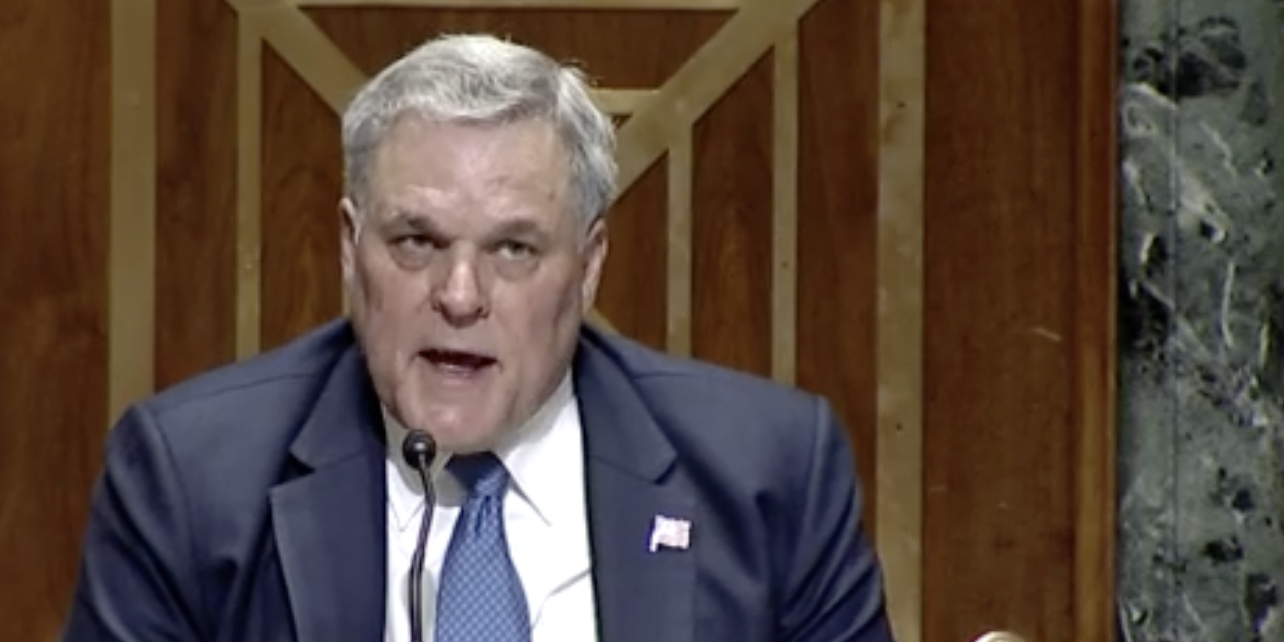
Senate Finance Committee
- The IRS wants more Congressional authority to conduct tax-collection operations for cryptocurrencies, the agency's commissioner said Tuesday.
- Commissioner Charles Rettig said the IRS needs a stronger hand to crack down on fraud.
- A 2022 budget proposal calls for the agency to receive $41 million to expand efforts to tackle cybercrime.
- See more stories on Insider's business page.
The Internal Revenue Service is asking US lawmakers to give the agency more authority and funding to regulate the cryptocurrency industry. It's seeking to beef up tax collection efforts and crack down on suspected fraud, the head of the agency said at a hearing in Washington on Tuesday.
IRS Commissioner Charles Rettig appeared before the Senate Finance Committee to discuss a proposal for more funding in the government's budget for 2022. The IRS is seeking $41 million to expand efforts to tackle cybercrime and $32 million for operations related to crypto enforcement. The agency is also proposing additional information reporting for businesses that have received crypto assets with fair market value of more than $10,000.
Senator Ron Portman, a Republican from Ohio serving on the committee, asked Rettig if the agency in issues related to information reporting on cryptocurrency has the necessary authority to issue appropriate regulations.
"I think we need Congressional authority," Rettig said. "As you're aware, we get challenged frequently and to have a clear dictate from Congress and the authority of us to collect that information is critical," he said.
Rettig's appearance comes as President Joe Biden and his administration seeks tighter regulations to deal with who they see as cryptocurrency tax evaders. The Treasury Department in May detailed plans to have any cryptocurrency transfers of at least $10,000 be reported to the IRS.
Rettig noted that the market capitalization of cryptocurrencies had recently increased to more than $2 trillion and he said there are more than 8,600 exchanges worldwide.
"And by design, most crypto virtual currencies are designed to stay off the radar screen, so you know, we will be challenged," he said, adding that the agency currently pursues so-called John Doe summonses to track down unidentified and potential US taxpayers.
Last month, a federal court in California authorized the IRS to serve a John Doe Summons on crypto exchange Kraken to seek the identities of taxpayers who exchanged cryptocurrencies worth at least $20,000 between 2016 and 2020.
"We're very active in both the civil and the criminal enforcement world. We do need additional tools, we absolutely need additional resources," said Rettig.
A selloff in the cryptocurrency market during recent weeks has dragged down the market cap of cryptocurrencies to about $1.51 trillion.

